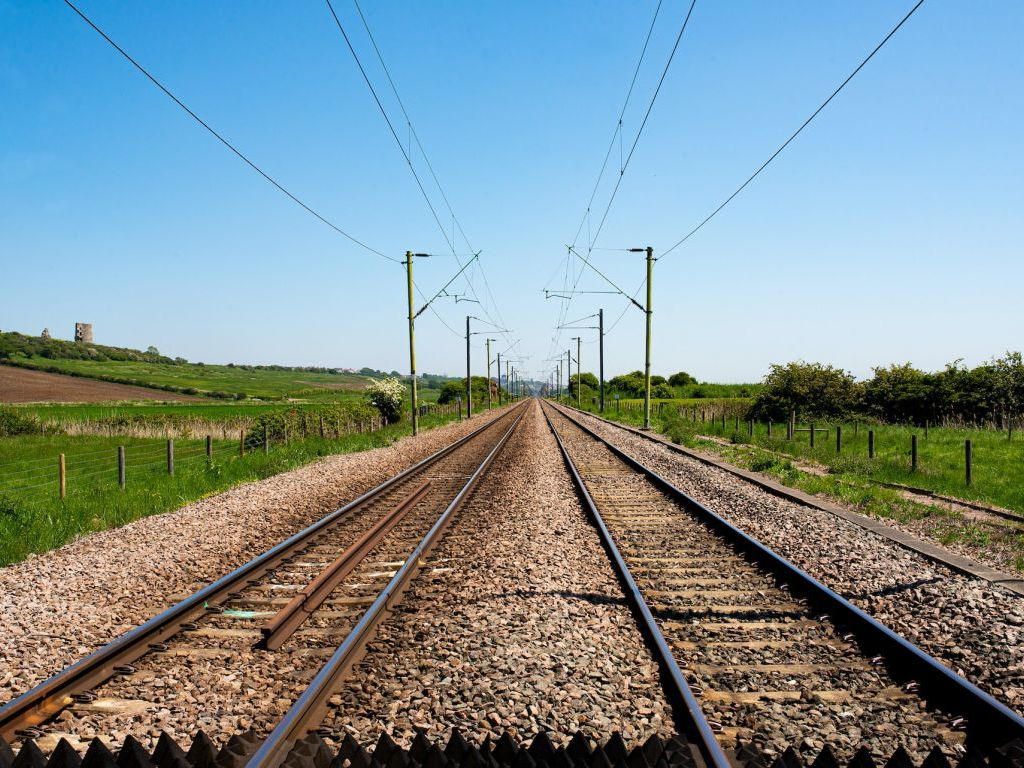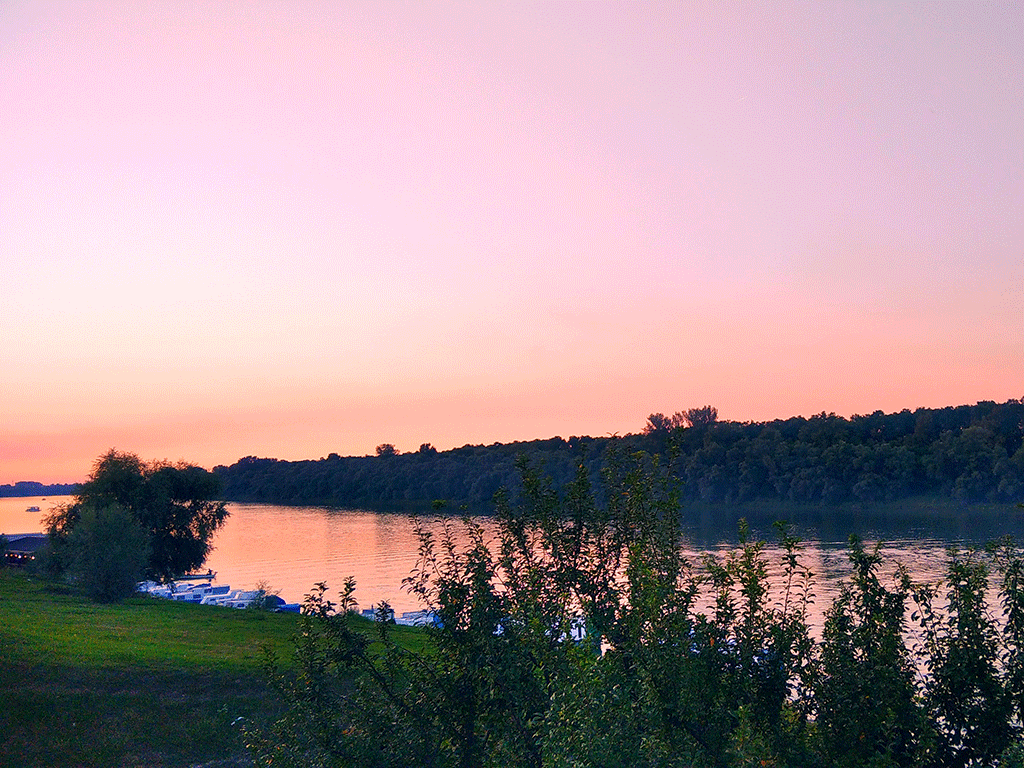Edin Forto, Minister of Communications and Transport of Bosnia and Herzegovina - I expect Corridor Vc to be completed by 2030, the Sava mine-free by 2025, for the modernization of the railway Doboj-Tuzla-Zvornik EUR 500 million and the tender for the bridge over Tara by the end of the year
Edin Forto (Photo: Ministarstvo komunikacija i prometa Bosne i Hercegovine)

In Bosnia and Herzegovina, we hardly use railways, we hardly ever sail, and in order to change that picture in the foreseeable future, great financial, logistical and political efforts are needed, and very often compromises. On the other hand, Corridor 5c, as part of the larger Pan-European Corridor 5, has been the most important traffic project in Bosnia and Herzegovina for years. Its end, although with numerous breaches of the expected deadlines, is still in sight, so the time has finally come to turn to the modernization and improvement of other modes of transport, people and goods, which are by their nature both economically profitable and environmentally acceptable.
- The previous ten-year period was spent on developing ideas on how to improve the road infrastructure in Bosnia and Herzegovina, and from the idea to the implementation, it is necessary to invest a huge amount of effort, which in my opinion was lacking. Bosnia and Herzegovina has human capacity, it has resources for large infrastructure projects, it has possibilities for financing, but it is important to start the cycle and finish it to the end - Edin Forto, Minister of Communications and Transport of Bosnia and Herzegovina, pointed out in an interview for eKapija.
He adds that they managed to divert attention from the road connection to the rail connection and that he is satisfied with that.
- We need a strong internal dialogue in Bosnia and Herzegovina, which is what we are currently working on. Finally, we need a joint approach towards financial institutions with prepared projects. I can conclude that railway traffic has a huge potential for the further economic development of Bosnia and Herzegovina.
eKapija: When we look back ten years ago, which implemented traffic projects would you say were the most significant, of course along with the inevitable Corridor 5c?
- Projects that contribute to a better connection of larger cities in Bosnia and Herzegovina, as well as BiH with other neighboring countries, are certainly the most important. Corridor Vc, road and rail, was precisely designed as a basic infrastructure intended to facilitate the expansion of the economic potential of Bosnia and Herzegovina. All projects on Corridor Vc are of exceptional importance. It is very easy to calculate the benefits of a constructed kilometer of highway or railway on Corridor Vc.
This European direction has its function, I`m sorry that the construction dynamics were not appropriate, but BiH`s obligation is to build the complete corridor, in accordance with the set standards, and put it into full operation by 2030. In the last ten years, these were mainly projects on the Vc road corridor.
The improvement of the road communication between Sarajevo and Tuzla through certain renovations that were done is significant, while in other segments there were no systematic capital improvements. The most important capital projects that have been completed and which are particularly noteworthy are the construction of two interstate bridges on the Sava River, the bridge near Svilaj on Corridor Vc and the bridge near Gradiška.
For the most part, the previous ten-year period was spent on developing ideas on how to improve the road infrastructure in Bosnia and Herzegovina, and from the idea to the implementation, a huge amount of effort needs to be put in, which in my opinion was lacking. Bosnia and Herzegovina has the human capacity, it has the resources for large infrastructural projects, it has the possibilities for financing, but it is important to start the cycle and finish it to the end. I would say that the key problem is perception and the fact that so far these proposals have not been given the necessary attention nor have they been sufficiently developed to be considered by international investment institutions. We wandered between the priorities of different actors, often ignoring the agreed-upon things, such as the elements set by the Traffic Framework Strategy until 2030, which is one of the characteristics of developing countries such as Bosnia and Herzegovina.
Ilustration (Photo: Ben Garratt/Unsplash)

eKapija: You recently pointed out that railways are the sector on which future projects in Bosnia and Herzegovina will focus. In this direction, what would be the priority activities and projects of greatest importance for the domestic economy?
- Railways are a generator of economic development, environmental sustainability, and the basis of the development of the transportation system. We can solve all the problems we have in road traffic regarding air pollution and traffic safety by actively developing railway infrastructure and operations. Investing in railway infrastructure is profitable in many ways, but in practice in Bosnia and Herzegovina it has so far been rather neglected.
So far, it seems, we have learned how to build highways, but at the same time we have completely neglected the development of the railway infrastructure, for which no level of government has ensured adequate financing or reforms that are a condition for significant investments by international partners. Unlike us, the countries of the region have made a lot of progress, and especially the countries in the EU, when it comes to investing in the railway system, which is due to the economic flow, which is due to passenger traffic and all the benefits that a society that is actively involved in the green transition has.
Unfortunately, we are quite late, but, on the other hand, we have the opportunity to do a lot. The reconstruction of the railway line on Corridor Vc is an absolute priority, and we have clearly committed ourselves to what we need to do by 2030. In addition, it is necessary to provide public funds for the reconstruction of the railway rolling stock for passenger and freight traffic through the establishment of efficient financing mechanisms. The fact is that the comprehensive reform of the railway implies competition as a means to make the railway sector more efficient and sustainable, all with the aim of creating a common transport market through achieving full interoperability and harmonization with the wider network outside the borders of Bosnia and Herzegovina.
Reconstruction of the railway from Doboj via Tuzla to Zvornik and the border with the Republic of Serbia, construction of the railway from Nikšić to Čapljina, restoration and revitalization of the Una railway, revitalization of railway traffic from Sarajevo to Zagreb and from Sarajevo to Belgrade, establishment of functional passenger traffic on railway lines within Bosnia and Herzegovina connecting Mostar and Sarajevo with Banja Luka, Doboj and Tuzla are just some of the projects that require the involvement of everyone in the country. These are projects that require serious financial resources, but also the most profitable long-term and first-class development projects that are the backbone of future economic development.
We have managed to shift the focus from road connectivity to rail connectivity, and I am pleased with that. We need a strong internal dialogue in Bosnia and Herzegovina, which is what we are currently working on. In the end, we need a joint approach to financial institutions with prepared projects. I can conclude that railway traffic has a huge potential for further economic development of BiH within the region and within the European Union, which, above all, depends on our agreement and the active realization of the set priorities.
eKapija: An agreement with Serbia on investment in the railway corridor is also expected. Unfortunately, it seems that Bosnia and Herzegovina is only now trying to catch the connection in the modernization of this form of transport. Can we bid when more extensive works could start and by when Bosnia and Herzegovina could have better quality rail transport?
- The reconstruction of the railway line Doboj-Tuzla-Zvornik-Sabac-Ruma is a joint project on which we are working with the Government of the Republic of Serbia. Negotiations await us in a few days, and I expect the signing of the agreement with Minister Vesić by September of this year. Then we have formally met the conditions for securing financial resources and drafting project documentation, which has already begun to be worked on for the part of the railway in the Republic of Serbia. Some of our estimates at the moment of the financial structure are, for the Bosnia and Herzegovina part, in the amount of around 500 million EUR. The project also includes the connection from Tuzla to Brčko, as well as the connection with the Tuzla airport. During the year, we would have more serious projections, and at this moment, taking into account the complexity and scope of the project, the most important step would be the preparation of the main project for this section, which would then provide all the answers to questions related to future works on this section.
eKapija: The Sava River is another one of the underutilized potentials in BiH from the aspect of transport. What steps are planned in that field?
- The improvement and development of navigation on the Sava River, which has the status of a waterway on which the international navigation regime has been established, implies the reconstruction and modernization of the waterway of the Sava River, i.e. raising the navigability class, marking and maintaining the waterway and the introduction of the river information system. Taking into account the activities we carry out in BiH, the restoration of the waterway of the Sava River and the construction of traffic infrastructural facilities that improve the connection of traffic routes, as well as the connection of those routes with the traffic network of the European Union member states and the countries of the Western Balkans, have a special meaning for BiH.
Sava River (Photo: Dragana Pajkanović)

eKapija: Do you remember any high-quality traffic projects that were proposed but never came to fruition? Do you plan to "revive" any of them during your mandate?
- Better rail and road infrastructural connection of the Una-Sana canton with the rest of the country, connection of rail corridors to connect the Port of Ploče and the Port of Bar with the Čapljina-Trebinje-Nikšić connection, better connection of Sarajevo with Tuzla, rail passenger transport between major cities in BiH, modernization of railways station services, improvement of infrastructure at border crossings, improvement of railway border procedures with neighboring countries, improvement of the waterway of the Sava River, implementation of regulations in the field of maritime traffic, regulation of the status of maritime countries, improvement of international airports, harmonization of legislation with regulations in force in the European Union with the aim of integration Bosnia and Herzegovina in the EU, especially for Chapters 14 and 21, all of these are projects and programs that are a priority in the work of the Ministry, which I head.
A lot of that was proposed in the previous period, but adequate implementation was obviously lacking. It is now up to us to show that in the period ahead, we can plan and build better and more efficiently, as well as speed up the accession of Bosnia and Herzegovina to the European Union.
- This year, in cooperation with the Republic of Croatia, we are starting the development of a justification study for the reconstruction of the Una railway, i.e. the section Novi Grad-Bihać-Knin, with a total length of 179 kilometers, of which 120 kilometers pass through Bosnia and Herzegovina, which is an extremely important railway infrastructure connection between the two countries, which was used by one million passengers in 1991 and which transported four million tons of goods. After years of inadequate attitude towards this infrastructural potential, in cooperation with our partners from the Republic of Croatia, we will put all our energy into making this railway come alive again.
In April this year, the Agreement on the construction of a bridge over the Tara River and connecting sections on the Brod na Drina-Šćepan Polje road came into force. One big blemish from the past when it comes to the cooperation between Bosnia and Herzegovina and Montenegro, and one big opportunity in the present to improve the quality of life in this region. This topic has been on the agenda for a long time with many, I would say too many, missed opportunities. I would not go back in time and dwell on missed opportunities. Today we have a clear vision - a modern road Brod na Drina-Šćepan Polje, which connects the capitals of the two countries, Sarajevo and Podgorica, with a new interstate bridge on the Tara River, and a modern integrated border crossing on the territory of Montenegro. The cooperation with the Montenegrin side is excellent at the moment, the Montenegrin part of the access road to the new bridge is being designed. We have completed the main project for the access road and the new bridge, we are carrying out certain documentation updates.
Also, we have repeatedly repeated the readiness of the European Union to co-finance the construction of this road through the Growth Plan and Investment Framework for the Western Balkans. After all these years, my expectations are that by the autumn of this year we will call for a tender for the construction of the bridge and the connecting sections in accordance with the interstate agreement that is now in full implementation. We still have some preliminary issues to resolve, but, apart from occasional tapeworms of a rather political nature, I don`t see any obstacles at the moment that could jeopardize the realization of this project. It seems to me that today, for the first time, we are all on the same mission and all with the same goal.
We are starting the demining of the right bank of the Sava River, we are carrying out the reconstruction and marking of the waterway, we are starting the reconstruction of the road bridge over the Sava River in Brčko, where the main project is under construction, we are preparing for a technical inspection of the bridges on the border with the Republic of Serbia that are under the jurisdiction of Bosnia and Herzegovina, we are negotiating for the road communication from Bihać to the Republic of Croatia, we are preparing a project to improve the infrastructure at border crossings, we are launching the digitization of transport permits for neighboring countries.
The digital age has greatly shown its positive sides in countries and regions and Europe, it is high time that the digital transformation starts in our country, starting with the most basic benefit, so that citizens and companies no longer have to carry papers, but with a click, electronically solve their obligations today they take a lot of time and nerves. It is important that as many institutions and levels of government as possible understand this as their obligation and start on the path of digitization. Forward-thinking countries invest in digital infrastructure and citizen services as much as in physical infrastructure such as roads or railways.
In contrast to them, the situation in our country is that there is not enough investment, but what is even more devastating is the fact that Bosnia and Herzegovina has not yet withdrawn any KM of European and international funds for the field of digitization. This is where we made a breakthrough - we ended the negotiations with the European Commission in record time on our country`s accession to the Digital Europe Program through which the European Commission secured a fund of one and a half billion KM. We strive to be a generator of good ideas and best experiences that we collect through regional and EU cooperation.
Senka Trivić
On the link HERE you can view the current INFOMAP of the construction of highways and high-speed ways in Bosnia and Herzegovina and the region.

Click here to see the entire Special Edition Newsletter
"Transport and logistics - Ready to move the impossible?"
Back to newsletter
































